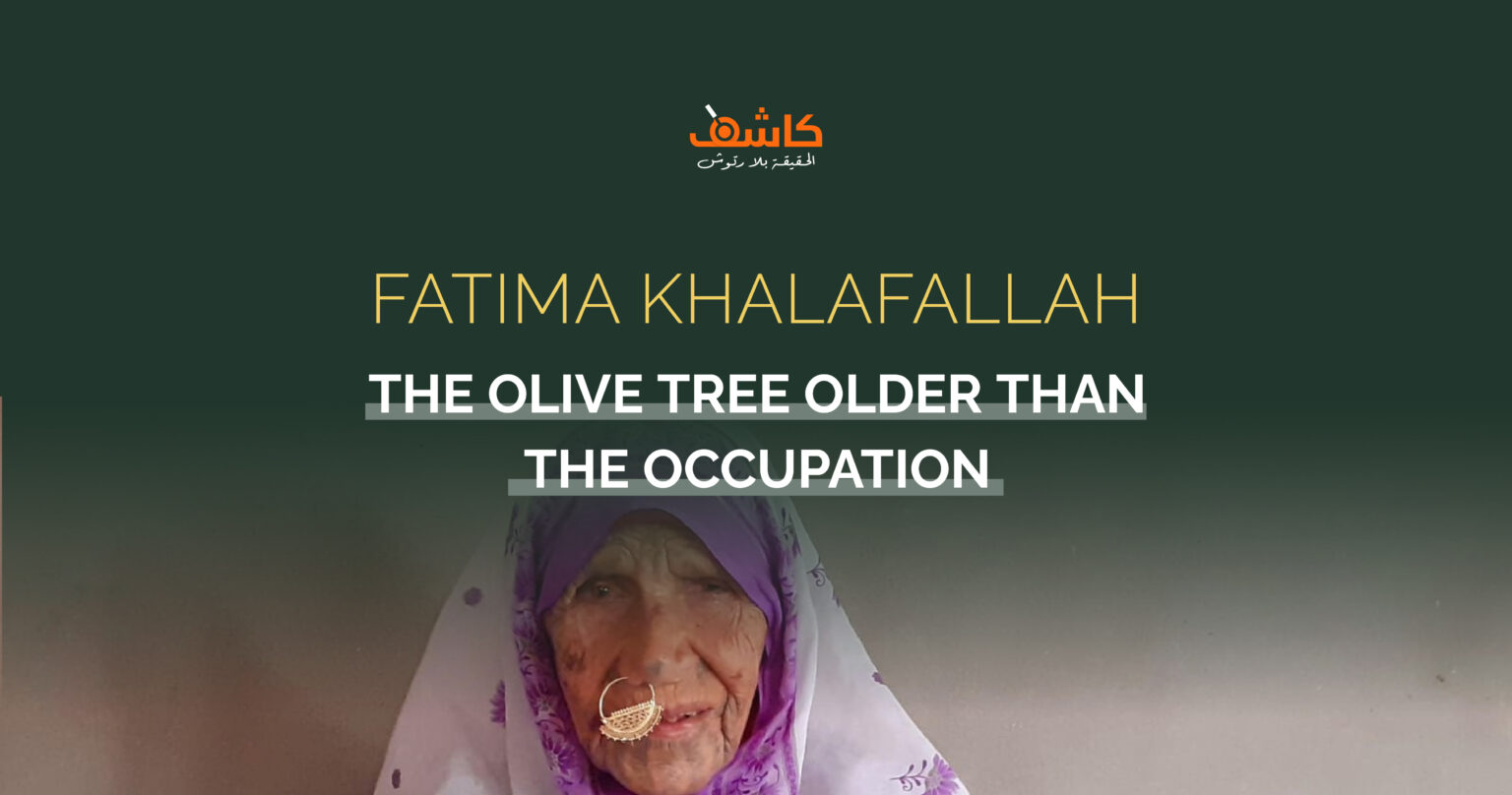Lamis al-Astal – Gaza
In the corner of her modest tent in the Mawasi area of Khan Younis, southern Gaza, elderly Fatima Khalafallah sits like an ancient olive tree whose roots run deep in the soil of her homeland, Palestine. Born before the establishment of the Israeli state, her sunken eyes rest in a deeply wrinkled face that reflects over a century of life — eyes that remain living witnesses to the long and painful history of her people.
“My family owned vast lands in Be’er al-Sabaa, southern Palestine,” she says in a trembling yet warm voice. “We had official ownership documents, the ‘qawashin’ — land deeds proving they were ours. We used to plant wheat, barley, and corn in that soil, harvest it after the season, grind it with a hand mill, and raise sheep, cows, camels, and more. We lived in homes made of woven goat hair — we’d dye and spin the wool ourselves — and fasten it with palm branches. Our relatives lived nearby, and we visited each other often. Life was full of love, warmth, joy, and simplicity back then.”
She adds, “Every educated person in the family would teach the boys in small study circles, using ink and a reed pen on old paper. The girls, meanwhile, handled household tasks — baking bread, making yogurt, cooking ghee and kishk, preparing meals over fire. They also helped in farming and caring for the livestock, right alongside the boys.”
“I married my cousin when I was just 14,” Fatima continues. “I wore a traditional Palestinian embroidered dress with beautiful, vibrant threads. I sat beside him with kohl-lined eyes and henna-decorated hands. The women sang folk songs and ululated with joy. The guests would bring a sheep as a gift to the newlyweds, and the family would cook it with bread and stew to serve for lunch. One of our customs was to leave the couple alone for three days after the wedding, before the bride returned to visit her family.” She proudly notes that she passed on her wedding dress to her daughter, to preserve Palestinian identity and keep the memory alive for future generations.
“In 1948,” she says with sorrow, “the Nakba descended upon our homeland. The Israelis stormed our city with tanks and machine guns. They destroyed our homes and stole our livestock. They threatened us — leave immediately or be killed. We fled in our clothes, taking nothing, to the town of Abasan, east of Khan Younis. Tears ran down our faces.”
The people of Abasan, she recalls, welcomed them with open arms, offering support and solidarity. “They let us build homes on their land and allowed us to farm so we could survive. We used to return to Be’er al-Sabaa (Be’er Sheva now) in the afternoons, while the occupation forces were absent, to plant and protect the crops with wheat stalks, hoping we could return home soon.”
She goes on: “My husband joined the Palestinian Liberation Army to resist the Israeli occupation that had stolen our land and displaced us. He was away for long periods. Every night, I waited with my children, praying for his safety and for the strength to serve our homeland — hoping one day we’d return to Be’er al-Sabaa.” But they’ve been denied that return to this day.
“I pray to God I don’t die before I return to my homeland,” Fatima says. “I’ve never forgotten my Palestinian identity, not for a single day. I always tell my children and grandchildren about our memories in our land and how the occupation took everything from us. I try to keep hope and optimism alive in them — that one day, we will return.” She even gave her daughter-in-law one of her ancient gold coins, “so that Palestinian heritage lives on, even if I leave this world.”
“Palestine is not just a piece of land,” she concludes. “It is ancient history, written in memory for thousands of years. Its olive trees embrace the spirits of our Canaanite ancestors who left us a sacred legacy the occupation tries desperately to erase — but they don’t realize that every child born here breathes in that ancient essence. Each one inherits the key to return, as if it were a gravestone for a home still alive, a symbol of rightful belonging. Every stone tells a story of authenticity, heritage, resistance, and sacrifice. No matter how long it takes, the occupation will fail — because Palestine lives on in us.”

